Sally Clarke30 Ingredients
Clarke’s is the legendary Notting Hill restaurant that pioneered seasonal fine dining in British cuisine. To mark the restaurant’s 30th birthday year, Sally Clarke, the award winning chef, restaurateur and author has chosen a handful of recipes for each of her favourite 30 ingredients. The simple idea of cooking with the freshest and best market produce, Sally Clarke’s vision for thirty years, is at the heart of her new book of ninety-five recipes.
SALLY CLARKE MBE is one of Britain’s most acclaimed chefs and restaurateurs. Trained in Paris and London, she moved to California in 1979, where she worked in the kitchens and dining rooms of Michael’s and West Beach Café. It was while in California that she met her mentor Alice Waters, chef and proprietor of Chez Panisse, and that her love of disarmingly simple cooking based on the freshest local ingredients was born. 2014-15 is the thirtieth anniversary year of the opening of the restaurant. The year began with a series of fundraising lunches and dinners, hosted by Sally Clarke and Alice Waters, in aid of the Edible Schoolyard Project.
Sally Clarke MBE
Without intending to do so Sally Clarke became a pironior of the London restaurant scene. Her vision which seems standard these days for restaurants everywhere helped to push London to the gastronomic destination that it is today.
Sally Clarke recently talked with us about her newest book which profile thirty of her favorites ingredients
Booksaboutfood.com(BAF): First question has to be how did you narrow it down to these thirty?
Sally Clarke: These are the one’s that we’ve used, more often I think, probably, in our thirty plus years than many others. The fact that it ended up being mostly vegetables, fruits, salads, and herbs, was completely coincidental. I hadn’t meant it to end up being a predominantly vegetarian book but that’s how it ended up. I wasn’t unhappy about that but I think as I say in my introduction, I love turbot and I love games and I love beef, but the one’s that I really, really enjoy using day in, day out are the ones that I chose for the book, really.
BAF: No pun intended, but it sounds almost an organic process. It just came about naturally.
Sally Clarke: Very much so, yes. Absolutely, yes, you’re right.
BAF: These are ingredients that you use fairly regularly.
Sally Clarke: Absolutely. I’m not sure whether you’re familiar with the restaurant, but as long as we’ve been here, we’ve changed the menu literally every lunch and every dinner, albeit using similar ingredients throughout the seasons, obviously. If one looked at the menu on a Monday and then compared it with the following Friday’s menu, one would see a lot of similarities.
We change the garnishes. Obviously, the fish changes on a daily basis. We basically are buying what is best and freshest in the market on the day. That’s how I plan the menus.
BAF: You’re very seasonally based, I believe that you were one of the first in London to be.
Sally Clarke: Yes, very much so. Yep, absolutely and thank goodness everybody’s following suit, but it’s taken a lot of people a lot of time to get the point.
BAF: I believe it was almost controversial at the time.
Sally Clarke: Well, certainly offering a set menu, which we did for our first 25 years, was very controversial and a lot of people didn’t understand it at all, but we stuck to our guns and managed to prove our point within a relatively short period of time.
BAF: Well, 30 years is certainly something.
Sally Clarke: Yeah.
BAF: Can I just ask a little bit about the writing process? You’ve chosen your ingredients. Was it hard to narrow down such a versatile group into a limited number of recipes or into a book?
Sally Clarke: That was probably the hard part. Say, just taking apricots, for example. I can think of dozens of wonderful ways to use apricots because they are such a versatile ingredient, both for sweet and savory dishes. It was difficult to trim it down to the three or four, five per chapter as it were. I think I was focusing on how it related to the restaurant and how our menu has evolved over the years and to really sort of pick and choose the ideas that have become popular and we’ve become noted for, perhaps.
BAF: There’s a very personal touch to this book that a lot of books don’t have because these are all specific ingredients that you appreciated and enjoy using. There’s something very personal about that.
Sally Clarke: Very much so. Yes, and I think the way that I write the methods probably is very much personal to the way that I like to cook myself. I’m not a terribly disciplined cook, but in terms of the logic, the process of a recipe or the order in which one does something or the preparation followed by starting the cooking or whatever it might be, there is a certain way that I like to work. I try to put that through in the recipes to make it sort of simpler and easier for the reader.
BAF:: It doesn’t seem like a particularly English book. It’s open to everybody. It’s not sort of limited to English food.
Sally Clarke: Good, I’m glad. I’m very glad. I did have a 92 year old lunch customer today complain that she’d given my book to an American friend of hers who’d given it back to her because she said, “I can’t cope with this book because it doesn’t have American measurements in it.” I think there are two 90 year olds complaining about the lack of cup sizes and pint measurements, but I think, certainly, it spans Italian influences. Little bit of Spain in there and definitely a bit of France and I hope my time in California is infused within some of the menu ideas at least.
BAF: Yeah, well that’s sort of my feeling was that it was very open. A lot of times when you have a chef that’s well-known somewhere, a lot of their food is just so focused on their city and their own personal vision. This, I felt, seemed to span much more.
Sally Clarke: Good, well, I hope that’s a good thing. Yes.
BAF: I was intrigued by the 30 ingredients that weren’t specific to a place. It was a broad usage.
Sally Clarke: Ah, yes. That’s absolutely true, yeah.
BAF: Well can I ask a little bit about English food? How has that changed in 30 years?
Sally Clarke: Well, I think that we, at Clarkes, can be proud of the fact that probably, as you were just saying, we were the beginning of focusing on seasonality and what is appropriate for the week or the month or the time of year or the particular weather on the day. I remember when we first opened, there was very little to choose from in London if one went out to eat. One either went haut cuisine, very traditional, very reduced sauces and lots of cream and butter with a French root … or one went Italian and put up with very low-key sort of trattoria style, with most of the ingredients coming out of tins or packets … or very traditional, rather heavy, British-based food.
I just know that … really, I suppose in the last 15, 20 years, London in particular has evolved. It’s unrecognizable, really, to its former self, I think. It’s very difficult to choose now, in London, where to go because there’s so much good food out there now. I think it’s true to say that up and down the country, too, although obviously restaurants and hotels in the depths of the countryside do struggle to A, get their customers and B, get their ingredients. We’re blessed in London with the markets that we have and the constant flow of customers from all over the globe, really.
The caliber of menus and ingredients has changed … I would say probably more than any other country, any other city that I can think of, in the last twenty-ish years. I think that we were probably part of that movement. We’re part to blame.
BAF: You didn’t set out to be a rebel, did you? You were just doing what you wanted to.
Sally Clarke: No, absolutely. I very much wanted to do what was in my heart and what was in my soul and what I felt was right. Having spent five years in California, I knew exactly how I saw the plates being presented, how I wanted the dining room staff to behave at a table and present themselves. I knew exactly how I wanted the dining room to look. Yeah, I would say I had pretty fixed ideas.
I wasn’t following a trend, as it were. I don’t think we’ve ever done that. We’ve just plowed our own field in hopes that people would come along on the wave with us … but it was definitely Alice Waters that gave me the seal of approval really to my mad idea that I’d had since I was a teenager. If I ever opened a restaurant, it was going to be a restaurant with no choice.
I wanted people to eat what was literally picked from the garden on that day. Although, obviously that doesn’t happen here. We couldn’t possibly do that … but handpicked from the market or from the little growers that we’re still buying from. They’re the ones who are helping to plan the menu and they’re the ones that get the balance of the menu right with me.
BAF: I’m a big fan of English food and I think English produce is wonderful. It’s got a bad reputation over the years.
Sally Clarke: It certainly has. We have a long way to go.
BAF: I’m a big fan of it. Can I ask … so you’re got this book out and you’ve obviously got a busy restaurant, are there any other projects in the future?
Sally Clarke: I’ve got another book in mind and I have started it. I have a 16 year old son who will hopefully be going off to university in a couple of years and I’d like to write the book that he would take as a kitchen manual to keep body and soul together. Hopefully, with some very simple dishes within it and a few dos and don’ts in the kitchen and menu planning and how to find farmer’s markets and make good use of them and cooking on a shoestring and cooking on a budget. Those are my ideas, anyway.
Sally Clarke
Without intending to do so Sally Clarke became a pironior of the London restaurant scene. Her vision which seems standard these days for restaurants everywhere helped to push London to the gastronomic destination that it is today.
Sally Clarke recently talked with us about her newest book which profile thirty of her favorites ingredients
Booksaboutfood.com(BAF): First question has to be how did you narrow it down to these thirty?
Sally Clarke: These are the one’s that we’ve used, more often I think, probably, in our thirty plus years than many others. The fact that it ended up being mostly vegetables, fruits, salads, and herbs, was completely coincidental. I hadn’t meant it to end up being a predominantly vegetarian book but that’s how it ended up. I wasn’t unhappy about that but I think as I say in my introduction, I love turbot and I love games and I love beef, but the one’s that I really, really enjoy using day in, day out are the ones that I chose for the book, really.
BAF: No pun intended, but it sounds almost an organic process. It just came about naturally.
Sally Clarke: Very much so, yes. Absolutely, yes, you’re right.
BAF: These are ingredients that you use fairly regularly.
Sally Clarke: Absolutely. I’m not sure whether you’re familiar with the restaurant, but as long as we’ve been here, we’ve changed the menu literally every lunch and every dinner, albeit using similar ingredients throughout the seasons, obviously. If one looked at the menu on a Monday and then compared it with the following Friday’s menu, one would see a lot of similarities.
We change the garnishes. Obviously, the fish changes on a daily basis. We basically are buying what is best and freshest in the market on the day. That’s how I plan the menus.
BAF: You’re very seasonally based, I believe that you were one of the first in London to be.
Sally Clarke: Yes, very much so. Yep, absolutely and thank goodness everybody’s following suit, but it’s taken a lot of people a lot of time to get the point.
BAF: I believe it was almost controversial at the time.
Sally Clarke: Well, certainly offering a set menu, which we did for our first 25 years, was very controversial and a lot of people didn’t understand it at all, but we stuck to our guns and managed to prove our point within a relatively short period of time.
BAF: Well, 30 years is certainly something.
Sally Clarke: Yeah.
BAF: Can I just ask a little bit about the writing process? You’ve chosen your ingredients. Was it hard to narrow down such a versatile group into a limited number of recipes or into a book?
Sally Clarke: That was probably the hard part. Say, just taking apricots, for example. I can think of dozens of wonderful ways to use apricots because they are such a versatile ingredient, both for sweet and savory dishes. It was difficult to trim it down to the three or four, five per chapter as it were. I think I was focusing on how it related to the restaurant and how our menu has evolved over the years and to really sort of pick and choose the ideas that have become popular and we’ve become noted for, perhaps.
BAF: There’s a very personal touch to this book that a lot of books don’t have because these are all specific ingredients that you appreciated and enjoy using. There’s something very personal about that.
Sally Clarke: Very much so. Yes, and I think the way that I write the methods probably is very much personal to the way that I like to cook myself. I’m not a terribly disciplined cook, but in terms of the logic, the process of a recipe or the order in which one does something or the preparation followed by starting the cooking or whatever it might be, there is a certain way that I like to work. I try to put that through in the recipes to make it sort of simpler and easier for the reader.
BAF:: It doesn’t seem like a particularly English book. It’s open to everybody. It’s not sort of limited to English food.
Sally Clarke: Good, I’m glad. I’m very glad. I did have a 92 year old lunch customer today complain that she’d given my book to an American friend of hers who’d given it back to her because she said, “I can’t cope with this book because it doesn’t have American measurements in it.” I think there are two 90 year olds complaining about the lack of cup sizes and pint measurements, but I think, certainly, it spans Italian influences. Little bit of Spain in there and definitely a bit of France and I hope my time in California is infused within some of the menu ideas at least.
BAF: Yeah, well that’s sort of my feeling was that it was very open. A lot of times when you have a chef that’s well-known somewhere, a lot of their food is just so focused on their city and their own personal vision. This, I felt, seemed to span much more.
Sally Clarke: Good, well, I hope that’s a good thing. Yes.
BAF: I was intrigued by the 30 ingredients that weren’t specific to a place. It was a broad usage.
Sally Clarke: Ah, yes. That’s absolutely true, yeah.
BAF: Well can I ask a little bit about English food? How has that changed in 30 years?
Sally Clarke: Well, I think that we, at Clarkes, can be proud of the fact that probably, as you were just saying, we were the beginning of focusing on seasonality and what is appropriate for the week or the month or the time of year or the particular weather on the day. I remember when we first opened, there was very little to choose from in London if one went out to eat. One either went haut cuisine, very traditional, very reduced sauces and lots of cream and butter with a French root … or one went Italian and put up with very low-key sort of trattoria style, with most of the ingredients coming out of tins or packets … or very traditional, rather heavy, British-based food.
I just know that … really, I suppose in the last 15, 20 years, London in particular has evolved. It’s unrecognizable, really, to its former self, I think. It’s very difficult to choose now, in London, where to go because there’s so much good food out there now. I think it’s true to say that up and down the country, too, although obviously restaurants and hotels in the depths of the countryside do struggle to A, get their customers and B, get their ingredients. We’re blessed in London with the markets that we have and the constant flow of customers from all over the globe, really.
The caliber of menus and ingredients has changed … I would say probably more than any other country, any other city that I can think of, in the last twenty-ish years. I think that we were probably part of that movement. We’re part to blame.
BAF: You didn’t set out to be a rebel, did you? You were just doing what you wanted to.
Sally Clarke: No, absolutely. I very much wanted to do what was in my heart and what was in my soul and what I felt was right. Having spent five years in California, I knew exactly how I saw the plates being presented, how I wanted the dining room staff to behave at a table and present themselves. I knew exactly how I wanted the dining room to look. Yeah, I would say I had pretty fixed ideas.
I wasn’t following a trend, as it were. I don’t think we’ve ever done that. We’ve just plowed our own field in hopes that people would come along on the wave with us … but it was definitely Alice Waters that gave me the seal of approval really to my mad idea that I’d had since I was a teenager. If I ever opened a restaurant, it was going to be a restaurant with no choice.
I wanted people to eat what was literally picked from the garden on that day. Although, obviously that doesn’t happen here. We couldn’t possibly do that … but handpicked from the market or from the little growers that we’re still buying from. They’re the ones who are helping to plan the menu and they’re the ones that get the balance of the menu right with me.
BAF: I’m a big fan of English food and I think English produce is wonderful. It’s got a bad reputation over the years.
Sally Clarke: It certainly has. We have a long way to go.
BAF: I’m a big fan of it. Can I ask … so you’re got this book out and you’ve obviously got a busy restaurant, are there any other projects in the future?
Sally Clarke: I’ve got another book in mind and I have started it. I have a 16 year old son who will hopefully be going off to university in a couple of years and I’d like to write the book that he would take as a kitchen manual to keep body and soul together. Hopefully, with some very simple dishes within it and a few dos and don’ts in the kitchen and menu planning and how to find farmer’s markets and make good use of them and cooking on a shoestring and cooking on a budget. Those are my ideas, anyway.
Booksaboutfood.com © 2015


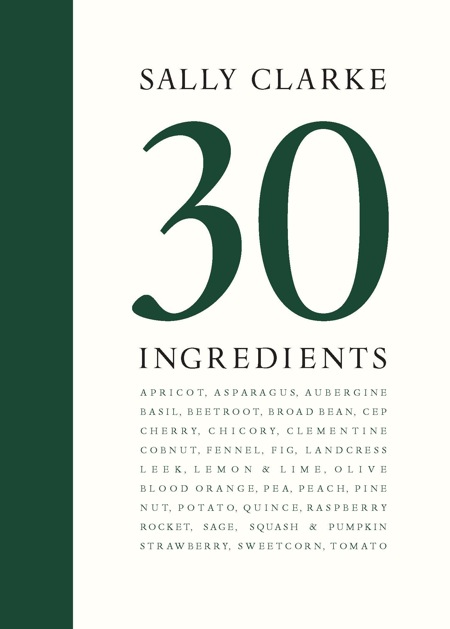


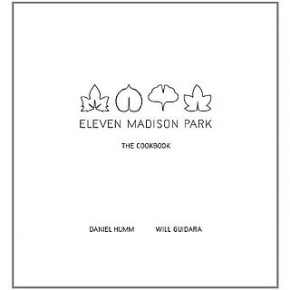
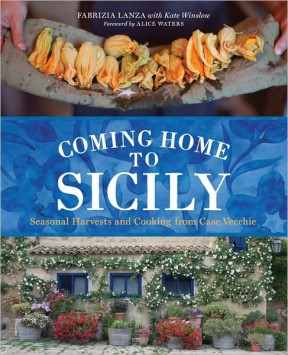
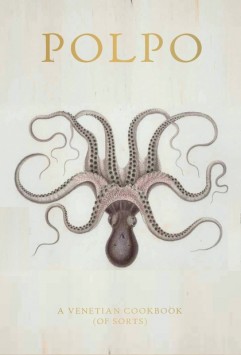
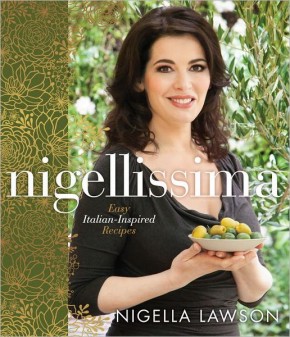
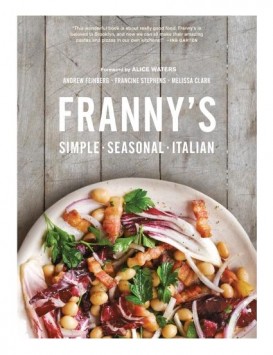
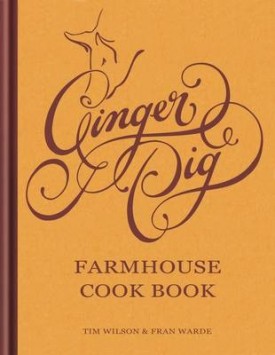
Leave a Reply